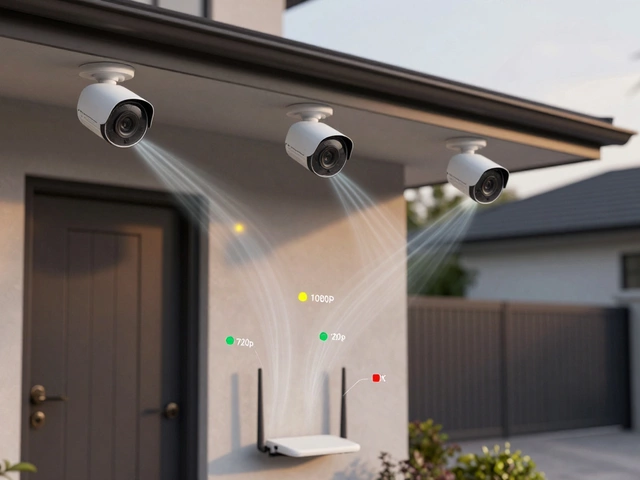Internet security and smart home basics you need right now
When the internet goes down, many of our safety tools stop working. That’s why understanding how Wi‑Fi impacts alarms, cameras and streaming is a must. Below you’ll find practical advice on keeping your home secure online, choosing the right smart doorbell, and budgeting for popular streaming services.
Wi‑Fi security cameras – what to watch out for
Wi‑Fi cameras promise easy setup, but they also invite hackers if you’re not careful. Always change the default password and pick a strong, unique one – think a mix of letters, numbers and symbols you can remember. Enable two‑factor authentication if your camera brand offers it; it adds a second barrier that most thieves skip.
Keep the firmware updated. Manufacturers release patches to fix security holes, and a few clicks each month keep your feed safe. If you can, put the cameras on a separate guest network. That way, even if a camera is compromised, the intruder can’t hop onto your main devices.
Consider the signal strength. Weak Wi‑Fi leads to dropped frames and can cause the camera to reboot, leaving gaps in coverage. Position the router centrally, or use a Wi‑Fi extender for dead zones. A stable connection means smoother video and fewer false alerts.
Smart doorbells and Wi‑Fi – do you really need a constant connection?
Most video doorbells rely on Wi‑Fi to stream live video and send alerts. Without a reliable network, you’ll miss the doorbell’s push notifications and recordings may fail. If your internet is spotty, opt for a battery‑powered doorbell that stores video locally until the network returns.
Check the power requirements. In the UK, a 16‑20 VA transformer is standard for wired models. Battery models usually last 6‑12 months, but you’ll need to charge them when the indicator starts flashing.
Test the chime compatibility before buying. Some systems need a traditional wired chime, while others work with wireless add‑ons. A quick call to your landlord or a glance at the existing wiring can save a pricey return.
Finally, think about privacy. A smart doorbell that constantly streams can use a lot of data, especially if you have multiple cameras. If your broadband plan has a data cap, monitor usage in the router’s admin panel and adjust settings to record only on motion.
While you’re sorting out internet‑related security gear, you might also be curious about streaming costs. Services like Roku charge a modest monthly fee for premium channels, but the base platform itself is free. Compare the price of each channel you need and cancel the ones you rarely watch to keep the bill low.
If you ever wonder whether Wi‑Fi jammers are a good idea, the short answer is no. They can block your own network as well as the neighbour’s, and in many places they’re illegal. Instead, secure your Wi‑Fi with a strong password, hide the SSID, and limit access to known devices.
Keeping your home safe online doesn’t have to be complicated. Change passwords, update firmware, use separate networks, and choose devices that match your internet reliability. Follow these steps and you’ll enjoy a smoother, more secure smart home without surprise outages or privacy scares.


